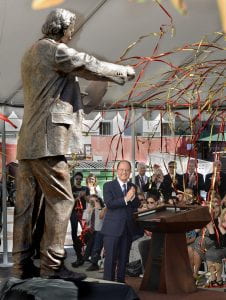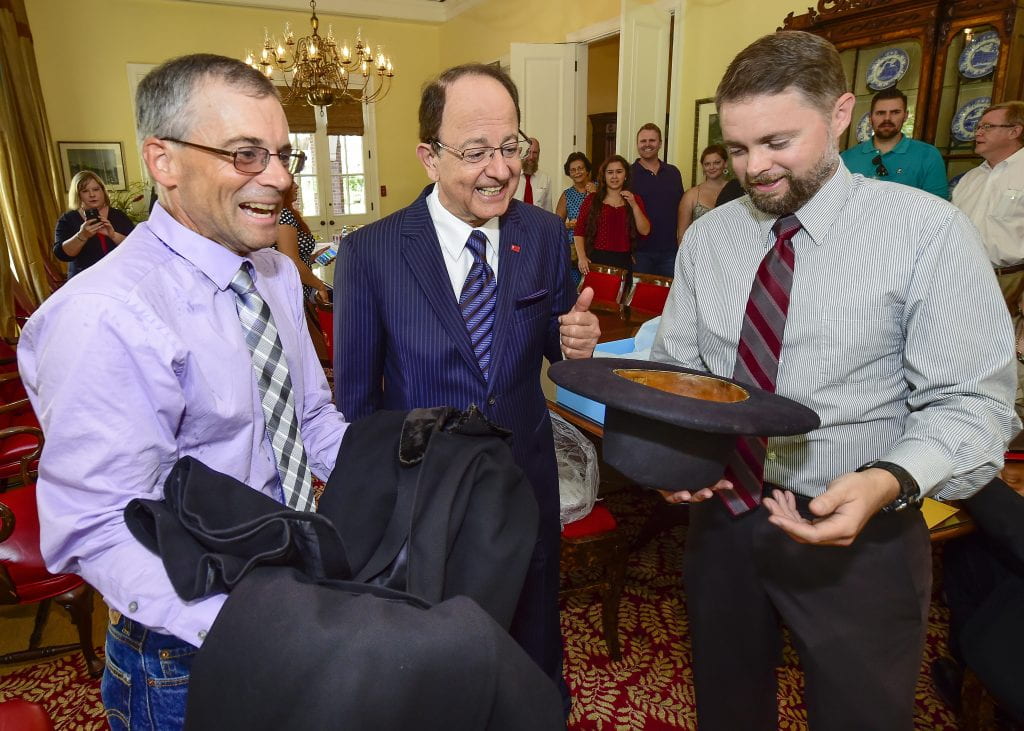The legacy of USC founder Judge Robert Maclay Widney was celebrated at the unveiling of an 8-foot bronze sculpture newly installed at the entrance of the Judge Widney Alumni House, during ceremonies held on the USC campus on August 29th, 2014.
The 1,000 lb. art piece was created by renowned California-born artist Christopher Slatoff, and the ceremony was attended by USC Trustees, senior leadership, and members of the USC community as the Trojan Marching Band led the crowd in a spirited display of cheering and music. Special honored guests at the event were the living descendants of Judge Widney, who presented USC President C. L. Max Nikias with two family artifacts: a top hat and cape owned and worn by Joseph Widney, Judge Widney’s brother and the second president of USC. The pieces have been donated to the University and will be preserved in USC’s permanent archive.<!–more–>
USC President C.L. Max Nakias unveils Judge Widney Statue during dedication ceremonies, Friday, August 29, 2014, in Los Angeles, California. (USC Photo/Gus Ruelas)

Judge Widney, one of the four founding fathers of the University of Southern California, was a real estate promoter, attorney and prominent judge, and is largely credited with setting into motion the events that led to the founding of USC.
A self-made man who left the farms of Ohio in 1857 (at age 16) to seek his fortune in California, Widney was instrumental in a number of advances in Southern California. He helped bring the Southern Pacific Railroad to Los Angeles, establish the city’s first horse-drawn trolley and organize the first chamber of commerce. He also helped form the Los Angeles County Bar Association and incorporate the city’s first light and power company. One of the most enduring accounts of his life occurred in 1871, when Widney intervened as violent anti-Chinese rioting stormed through town, drawing his pistol and plunging into the mob to escort several immigrants to safety. In December of that year, he was appointed a U.S. district judge.
When the University of Southern California was founded, largely through his perseverance, he was elected the first president of its board of directors and was one of the original trustees of the endowment fund.
